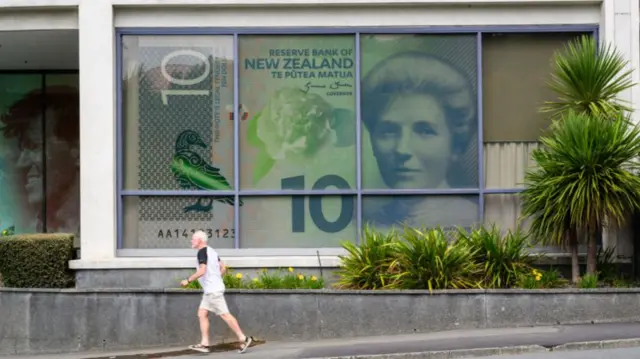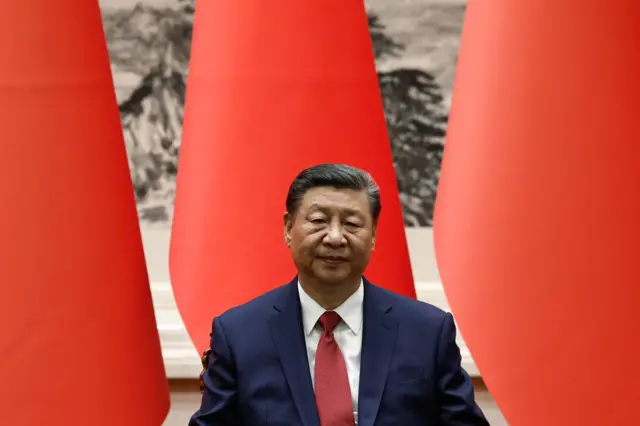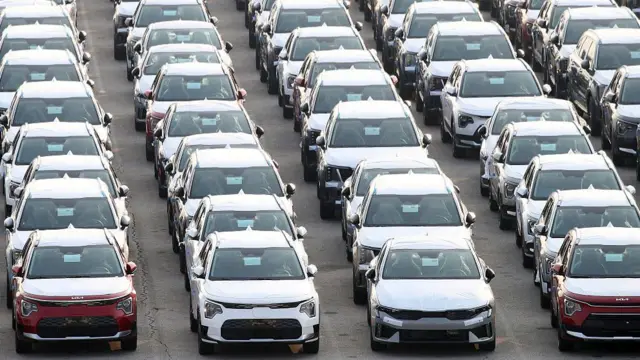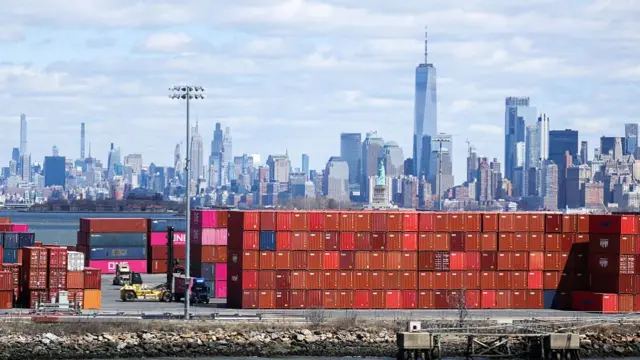New Zealand cuts rates over tariff concernspublished at 04:25 BST 9 April
New Zealand's central bank has cut interest rates as it looks to counter the risks of US tariffs.
On Wednesday, it lowered its benchmark lending rate by 25 basis points to 3.5%.
Policymakers said they moved "as the extent and effect of tariff policies become clearer".
The country was hit by a 10% tariff on its imports to the US over the weekend which Wellington has said it will not retaliate against.
Low interest rates generally help to stimulate an economy, as it reduces the cost of borrowing for individuals and businesses.
 Image source, Getty Images
Image source, Getty Images



